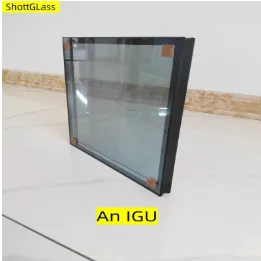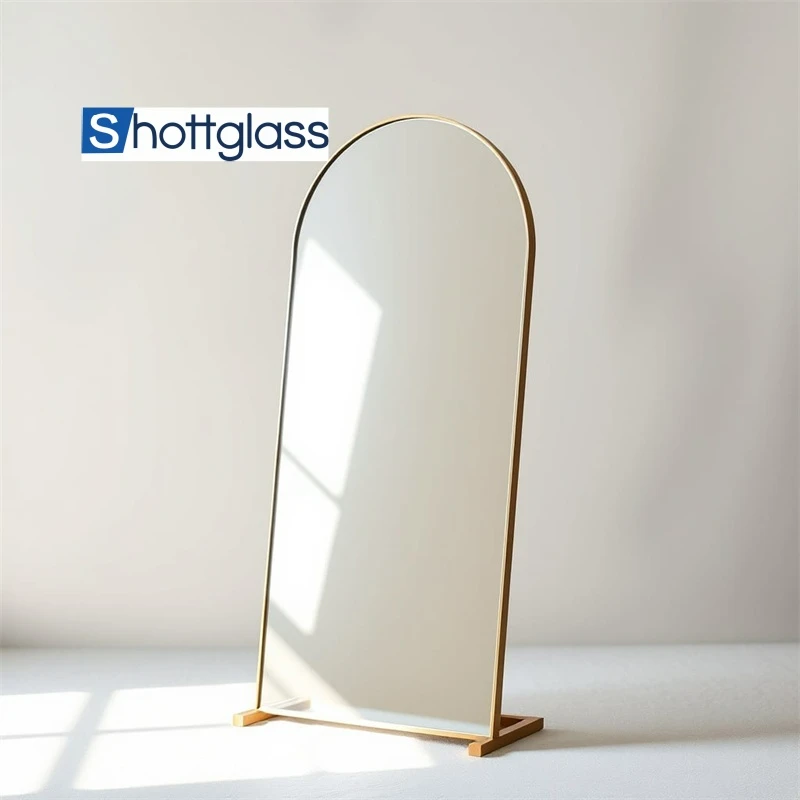Aug . 20, 2025 09:34 Back to list
Insulated Glass: The Ideal Choice for Building Energy Efficiency
In the field of modern architecture, Insulated Glass has become an important material for improving building quality and energy efficiency due to its excellent thermal and sound insulation performance. Its emergence has created a more comfortable environment for building spaces and made important contributions to energy conservation and emission reduction.

The construction of Insulated Glass may seem simple, but it contains the wisdom of scientific design
Insulated glass panels are typically composed of two or more flat glass panels, separated by spacers to form a closed air or inert gas layer, and sealed with high-strength sealant around the edges. The spacing strip is equipped with a desiccant, which can effectively absorb moisture in the sealed space and prevent fogging and frosting inside the glass. Different glass combination methods, such as combining ordinary glass with tempered glass and coated glass, can meet the performance requirements of different scenarios and further enhance their insulation and sound insulation functions.
The performance advantages of Insulated Glass are significant in practical applications
Insulated glass panels for windows have outstanding thermal insulation performance, and the air layer or inert gas layer can effectively prevent heat transfer. In summer, it can reduce outdoor heat entering the room and lower air conditioning energy consumption; In winter, it can maintain indoor temperature, reduce heating consumption, and greatly improve the energy efficiency of buildings. At the same time, it has excellent sound insulation effect, which can effectively block external noise such as traffic noise, industrial noise, etc., creating a quiet and comfortable indoor environment. In addition, Insulated Glass also has good anti condensation performance. In the case of large temperature differences, the glass surface is not easy to condense water droplets, ensuring clear visibility.
Insulated Glass is widely used in various types of buildings
Installing insulated glass unit windows and balcony doors in residential buildings can create a quiet and comfortable living environment for residents, while reducing energy consumption for home heating and cooling. In commercial buildings such as office buildings, shopping malls, etc., Insulated Glass can reduce the load on air conditioning systems, lower operating costs, and provide a good working and shopping environment for indoor personnel. In some special buildings, such as hospitals, schools, etc., the sound insulation and thermal insulation performance of Insulated Glass is particularly important, which can provide a quiet and suitable environment for patients and students, and help them recover and learn.
With the continuous improvement of energy-saving and environmental protection requirements in the construction industry, the technology of Insulated Glass is also continuously developing
The new Low-E coated insulated glazing further enhances insulation performance by coating a special metal film on the glass surface, which can more effectively reflect infrared radiation and reduce heat transfer. The improvement of inert gas filling technology, such as filling with argon gas, krypton gas, etc., has better insulation effect than the air layer and can meet higher energy-saving requirements. In addition, more advanced sealing technology has been applied to improve the sealing performance and service life of Insulated Glass, enabling it to perform stably in various environments for a long time.
In summary, Insulated Glass, with its scientific construction, excellent thermal and sound insulation performance, wide range of building applications, and continuous technological progress, has become an ideal material for achieving energy conservation, improving living and user comfort in the field of architecture. It not only conforms to the development trend of modern building energy conservation and environmental protection, but also creates a better living and working space for people, which has important practical significance and broad development prospects.
Insulated Glass FAQs
What is insulated glass and what are its core characteristics?
Insulated glass is an energy-saving building material composed of two or more pieces of glass, separated by a spacer strip and filled with dry air or inert gas (such as argon). Its core features include excellent thermal and sound insulation performance, anti condensation function, and high structural strength. Due to the presence of a hollow layer, it can effectively reduce indoor and outdoor heat exchange, thereby reducing the energy consumption of air conditioning or heating. Are you curious about the specific differences between it and other types of glass?
Why is insulated glass so popular in architecture?
With the popularization of energy-saving and environmental protection concepts, insulated glass has become one of the preferred choices for modern architecture. It can not only significantly reduce building energy consumption, but also improve indoor comfort and reduce external noise interference. In addition, its UV protection properties can protect furniture and flooring from sun fading. Do you think it will further replace traditional single-layer glass in the future?
How to determine whether the quality of insulated glass is qualified?
High quality insulated glass requires attention to multiple details: whether the glass thickness is uniform, whether the sealing of the hollow layer is good (to avoid air leakage), and whether the spacer strip contains desiccant to absorb water vapor. Poor quality products may cause gas leaks or internal fogging. Which certification standards do you prioritize when making a purchase, such as national standards or energy-saving labels?
What factors affect the sound insulation effect of insulated glass?
Although insulated glass itself has the advantage of sound insulation, the actual effect depends on the thickness of the glass, the width of the hollow layer, and the type of gas. For example, the combination of laminated glass and hollow structure can further enhance noise reduction performance. Do you need more professional sound insulation design for residential buildings near streets or airports?
How does insulated glass perform in extreme weather conditions?
In cold regions, it can effectively prevent indoor heat loss; In hot environments, Low-E coating can be used to reflect infrared radiation and reduce heat ingress. However, improper installation or sealing failure may result in frosting or failure of the hollow layer. Do you think special maintenance measures are needed in high humidity areas?
-
Types of Reflective Glass
NewsNov.17,2025
-
What Is Dichroic Glass?
NewsNov.17,2025
-
Smart LED mirrors can have touch controls
NewsNov.17,2025
-
Laminated glass improves energy efficiency
NewsNov.17,2025
-
Insulated glass enhances building comfort
NewsNov.17,2025
-
Acid etched glass offers elegant privacy
NewsNov.17,2025
Related PRODUCTS














